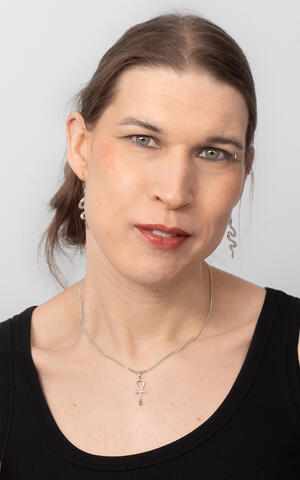Microbiome research to get a boost
Human beings – just like animals and plants – are colonized by a vast diversity of bacteria, viruses and fungi. This so-called microbiome plays a key role in the health of the host organism, and vice versa. Professor Sofia Forslund is head of the Host-Microbiome Factors in Cardiovascular Disease Lab at the Experimental and Clinical Research Center (ECRC), a joint institution of the Max Delbrück Center and Charité – Universitätsmedizin Berlin, and is one of the most cited researchers in the field of microbiome research. She has now initiated the establishment of a virtual microbiome institute for the Berlin-Brandenburg region.
Why is the study of the microbiome so crucial for the future of medicine?
Sofia Forslund: Microbiomes are everywhere – in, on and all around us. Their composition influences the conditions in our bodies, such as hormone and immune status or metabolism, and thus our state of health. At the same time, external environmental factors such as diet, exercise or drug treatments influence these microorganisms. In my research lab, we are looking at how the microbiome influences cardiovascular disease risk and progression or drug efficacy, how one’s lifestyle affects the microbiome, and so on. Ultimately, organisms and their microbiome form a very complex system that evolves together toward health or disease. We need to take this into account if we wish to understand and treat disease.
You have initiated the establishment of a virtual microbiome institute. What are you aiming to achieve?
In the Berlin-Brandenburg region, especially at the Max Delbrück Center and Charité but also at other university and non-university institutes, a wide range of scientists are interested in the various aspects of microbiome research. So we want to create a network that helps them and their work gain more visibility in the region. We also want to bring together knowledge, technology and infrastructure in order to realize synergy effects and drive research forward.
Is such a network particularly important in microbiome research?
Yes, I think it is very valuable for microbiome research because it is a field that is extremely interdisciplinary. It involves not only microbiology, but also various aspects of medicine and neurobiology as well as bioinformatics and data science. A network facilitates the pooling and sharing of different competencies and expertise. All researchers in region who study the microbiome are invited to join the network by contacting us.
Stefanie Reinberger conducted the interview.







